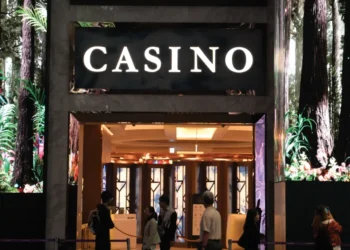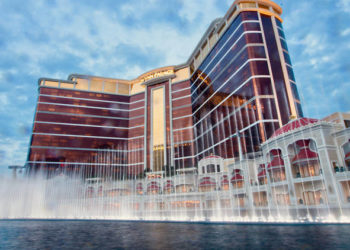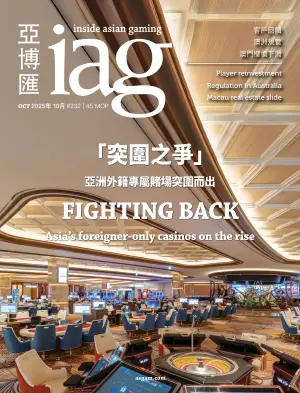Shares in Las Vegas Sands (LVS) appear so under-valued that they fail to price in the existence of the company’s Macau assets at all, with Singapore resort Marina Bay Sands potentially worth the entire LVS market cap at current valuation, according to CBRE Equity Research.
The investment opportunity is outlined in an overnight note from CBRE analysts John DeCree and Max Marsh, who point out that Macau gaming stocks are now trading at prices not seen since early 2022 – prior to Macau’s international borders reopening and still many months out from new 10-year concession contracts being signed.
Concerns over China’s economy, particularly in the midst of its trade war with the United States, appear to be weighing down sentiment although the analysts believe the impact of investor concerns do not reflect reality. This, they said, creates a compelling opportunity for long-term investors with LVS especially seen as a unique opportunity.
“While it is difficult to recommend Macau gaming in the current uncertain environment, LVS is simply too cheap to pass up,” CBRE stated.
“LVS shares are trading at a record-low 7.0x [next 12 months] EBITDA, below peers and even its Sands China subsidiary (7.9x), despite the significant value outside of Macau including at Marina Bay Sands (MBS) and its cash pile in the US.
“The undervaluation of MBS in Singapore, a premier asset in a duopoly market, is particularly notable. Singapore’s resilient local market and ongoing suite conversions at MBS are driving EBITDA growth, with long-term potential from the US$8 billion MBS IR 2 project.
“MBS could be worth LVS’s entire market cap today, implying Macau operations are a valuable free option.”
On current Macau headwinds, CBRE recognized that the lack of consumer spending on the mainland combined with tariff concerns presented risk but said the Asian gaming hub should remain shielded from any direct impact and could benefit from potential China stimulus measures.
“If exports decline, China could be motivated to provide additional fiscal stimulus to unlock the mountain of savings and boost domestic spending, which should support Macau’s gaming demand,” DeCree and Marsh said.
“Political risks, such as retaliatory actions against US gaming operators in Macau, are a concern but appear overblown. Macau’s integrated resorts are critical to the region’s economy, contributing over 80% of government tax revenue and US-based operators alone employ 14% of the workforce.
“Direct actions against operators could destabilize the SAR, making such moves unlikely.”




































